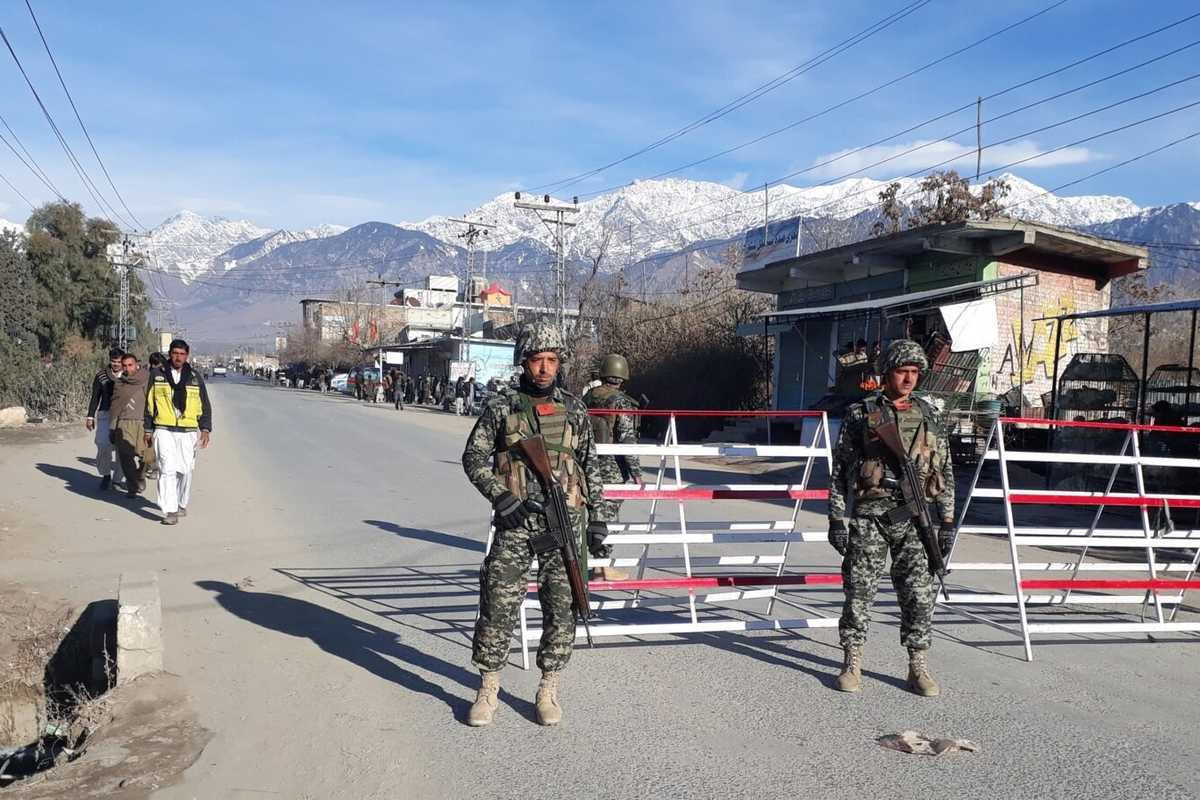Pakistan’s northwestern Kurram district struggles with sectarian violence and isolation
Fresh violence, including the killing of six men this week, underscores how fragile the security situation remains in Parachinar

Kamran Ali
Correspondent Nukta
Kamran Ali, a seasoned journalist from Khyber Pakhtunkhwa, Pakistan, has a decade of experience covering terrorism, human rights, politics, economy, climate change, culture, and sports. With an MS in Media Studies, he has worked across print, radio, TV, and digital media, producing investigative reports and co-hosting shows that highlight critical issues.

Pakistan’s Kurram district, a mountainous region along the Afghan border long scarred by sectarian strife, is once again on edge. The main Thall-Parachinar Road - a lifeline for more than 400,000 residents - has been shut for over nine months, cutting off the district’s capital despite repeated peace deals and disarmament efforts.
Fresh violence, including the killing of six men this week, underscores how fragile the security situation remains.
Falak Nawaz, Superintendent of Police (SP), told Nukta that unidentified gunmen opened fire on a vehicle near Mahora on Wednesday, killing six men, belonging to the Sunni community. “The incident appears to be an act of terrorism or sectarian violence, as no evidence of personal enmity has been found so far,” he said. Police have since launched a search operation in the surrounding areas.
Both Anjuman-e-Faruqia and Anjuman-e-Husainia - representing Kurram’s Sunni and Shia communities - condemned the attack.
Peace efforts falter
Despite multiple accords, residents say authorities have failed to ensure lasting peace. “If there were genuine commitment, peace could be restored in a single day,” said Shaheen Gul, a resident of Lower Kurram.
Sunni leader Shah Nawaz Khan echoed the frustration, noting that both communities had signed written pledges not to disrupt peace.
“Yet such incidents continue to occur,” he said, urging the government to launch a decisive operation against those undermining security and to hold local leaders accountable. “Only then will peace return.”
Besieged Parachinar
For residents of Parachinar, isolation has compounded the crisis. With the Thall-Parachinar Road closed for more than nine months, families are forced to rely on perilous alternative routes.
“We have been facing difficulties throughout this period, yet the state has failed to secure the main route,” said Kashif Hussain, a Parachinar resident. He added that even ambulances carrying patients are denied access to the highway.
Another local, Ghulfam Hussain, criticized the government for failing to protect civilians despite multiple peace agreements. “If protection of the main road is ensured, peace would automatically follow,” he argued.
Government response
The Khyber Pakhtunkhwa (KP) government points to the Kohat Peace Agreement as the cornerstone of its stabilization strategy in Kurram. Under the accord, 997 bunkers have been dismantled, while local elders oversaw the voluntary surrender of hundreds of small arms and 547 heavy weapons.
Aftab Alam, KP’s Law Minister, told Nukta that Kurram’s challenges are unique, combining sectarian tensions with cross-border terrorism risks due to its proximity to Afghanistan. He said police strength has been boosted and a reserve force recruited to secure key routes.
Alam added that new security posts will soon be established along the Thall-Parachinar Road, expressing confidence that “once the route is secured, peace will follow.”
Timeline of violence
The latest cycle of bloodshed began on November 21 last year, when a convoy of more than 300 vehicles was ambushed in Lower Kurram, leaving at least 42 people dead.
The attack sparked retaliatory violence, including targeted killings in Baggan that claimed dozens more lives. In response, authorities closed the Thall-Parachinar Road.
On January 1, the provincial government convened a grand jirga with both communities, which led to a peace accord. But despite these agreements and disarmament measures, residents say true stability remains elusive.







Comments
See what people are discussing